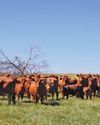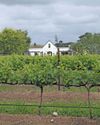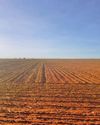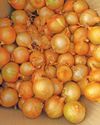
The International Trade Administration Commission of South Africa (ITAC) is currently deliberating on whether to extend tariff rebates on imported chicken for the second quarter of 2024.
These rebates came into effect in January this year to maintain the affordability of chicken for businesses and consumers and to offset any potential price hikes arising from supply shortages resulting from the avian influenza outbreak in late 2023, which led to the culling of over eight million chickens.
ITAC has estimated a 172 000t chicken shortage this year and plans to address it with rebates of 43 000t every quarter. However, if it determines there is no shortage of chickens, the rebate scheme may be discontinued.
Meanwhile, the South African Poultry Association (SAPA) has opposed the initial rebates and now the potential extension thereof, saying there is no chicken shortage.
“We appreciate the reason that the tariff rebates were published, which is to address a potential shortage of chicken on the market. However, our data indicates that there has not been and is no shortage in the supply of chicken to the market, and thus there is no need for the rebates to continue,” SAPA Broiler Organisation general manager Izaak Breitenbach said.
He added that the rebates were detrimental to domestic producers as they raised the risk of job losses and supposed ‘dumping’.
Esta historia es de la edición June 21, 2024 de Farmer's Weekly.
Comience su prueba gratuita de Magzter GOLD de 7 días para acceder a miles de historias premium seleccionadas y a más de 9,000 revistas y periódicos.
Ya eres suscriptor ? Conectar
Esta historia es de la edición June 21, 2024 de Farmer's Weekly.
Comience su prueba gratuita de Magzter GOLD de 7 días para acceder a miles de historias premium seleccionadas y a más de 9,000 revistas y periódicos.
Ya eres suscriptor? Conectar

The genetically unique Senepol: ideal for beef production in Southern Africa
Since its arrival in South Africa in 2001, the Senepol has become a strong contender in the country's beef cattle arena. Tiekie Muller, owner of the Nooitgedacht Senepol stud, spoke to Annelie Coleman about how the growing number of Senepol stud breeders underpins the value of the breed under exacting African conditions.

Microwave mango and granadilla cheesecake
This delicious mango fridge tart is so easy to make, perfect when you want a quick yet indulgent dessert (it only takes 25 minutes to whip up). The fruit’s gorgeous colour and fragrance are maximised.

Global outlook for wheat in 2024/25
In its latest estimate, the International Grains Council has adjusted global wheat production for the coming season due to poorer-than-expected harvests in the EU. However, global supplies remain strong, while global consumption is expected to increase to reach about 804 million tons. Janine Ryan reports.

From fallow land to award-winning wines: the Newstead story
Newstead Lund Family Vineyards, a relatively new wine estate, has established itself as one of the best producers of sparkling wine in South Africa. Owners Doug and Sue Lund spoke to Glenneis Kriel about their production philosophy, rise to success, and possible expansion plans.

Fact file of fungal diseases in wheat
Wheat is a significant crop, and like other crops, is susceptible to a range of infections. Here, we provide information on the most important fungal diseases that affect wheat.

Soil preparation for wheat and other cereals
For seed to germinate and plants to grow, soil often needs to be prepared. The manner in which it is done depends on the type of soil, the organic matter and moisture it contains, the crop to be planted, as well as the previous crop that was planted in the field. Magda du Toit spoke to cereal experts and farmers for guidance.

The origin of the Bonsmara
The Breed of the Month for March is the Bonsmara. In this first article, we take a look at the man behind this popular cattle breed, as well as how it was developed.

The Southern Sun Cape Sun hotel is once again a destination of choice
While some of its contemporaries have suffered from inner-city neglect, the Southern Sun Cape Sun hotel has bounced back in elegance and style, writes Brian Berkman.

Age catches up with the Nissan Navara
The Navara line-up was increased last year in Nissan's effort to win back market share. The Citizen's Mark Jones sampled the top-of-the-range Pro-4X to see how the double cab compares with modern bakkies.

Growing onion sets
Bill Kerr discusses what onion sets are, and how and when to produce them to obtain the maximum financial benefit.